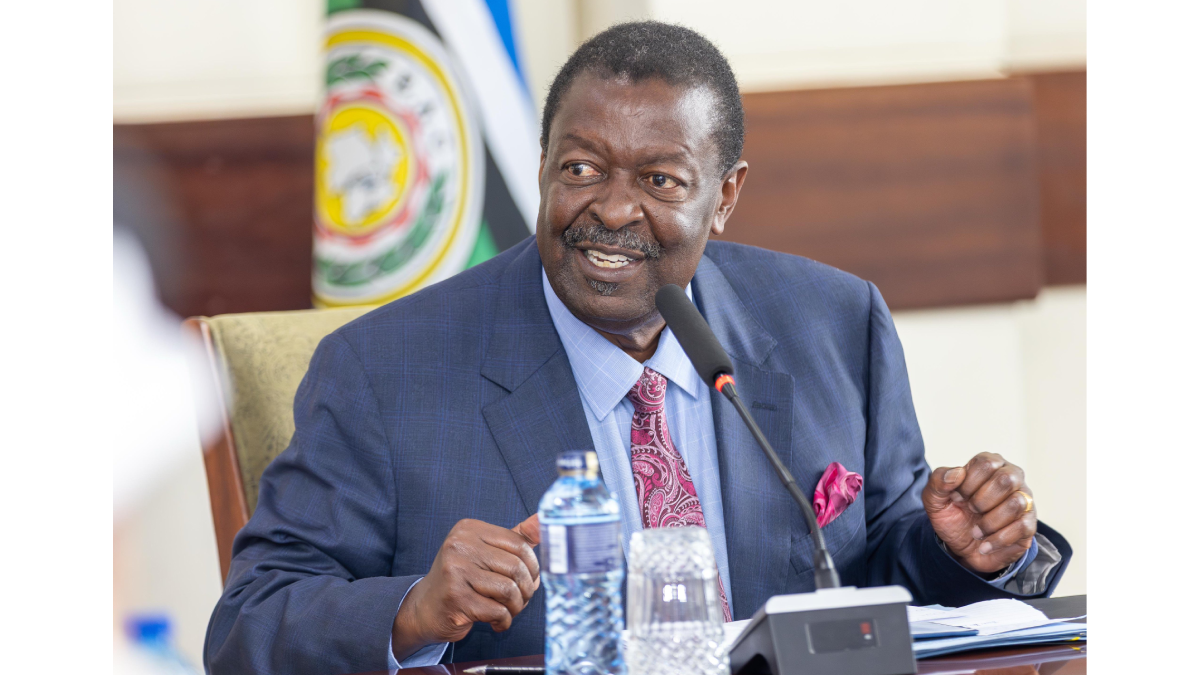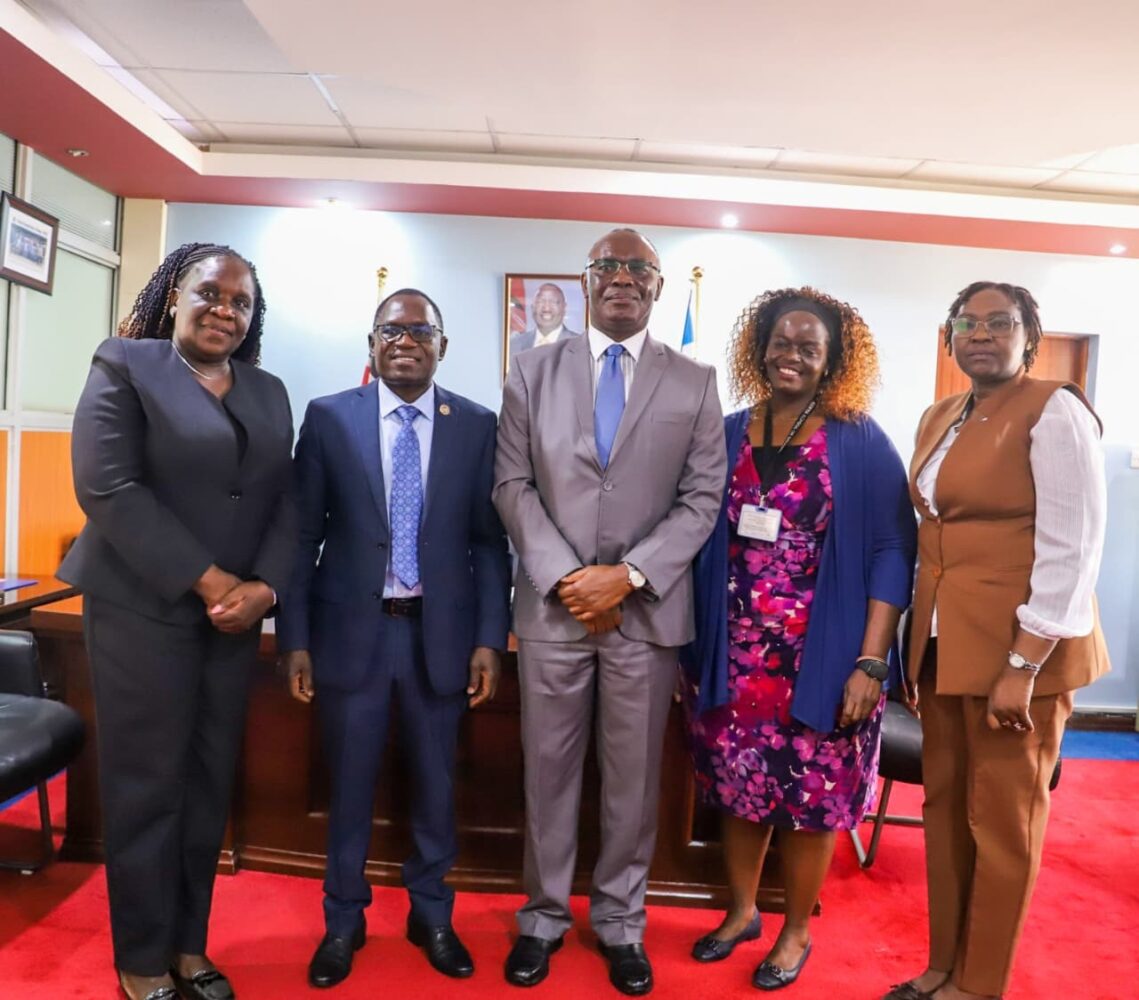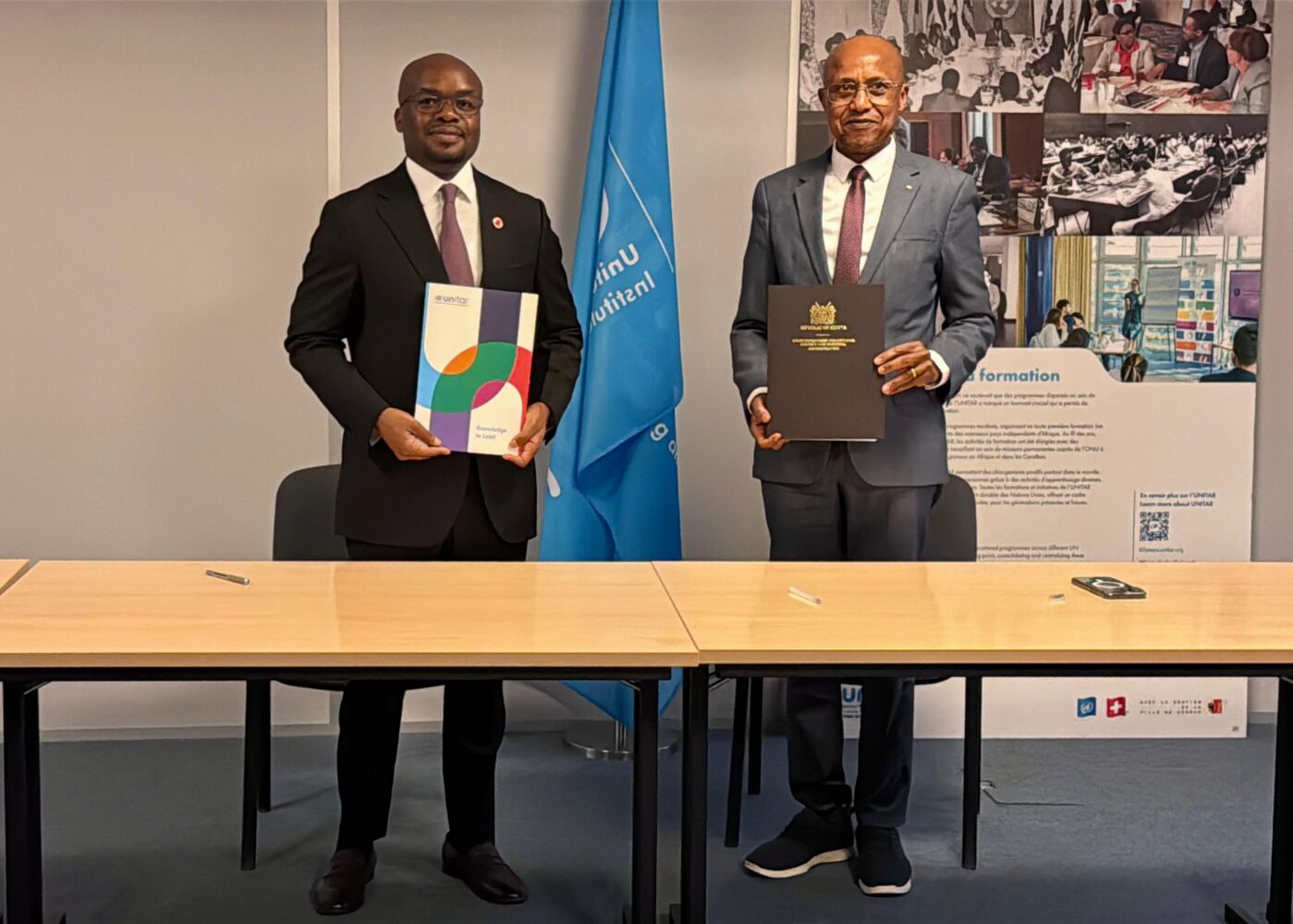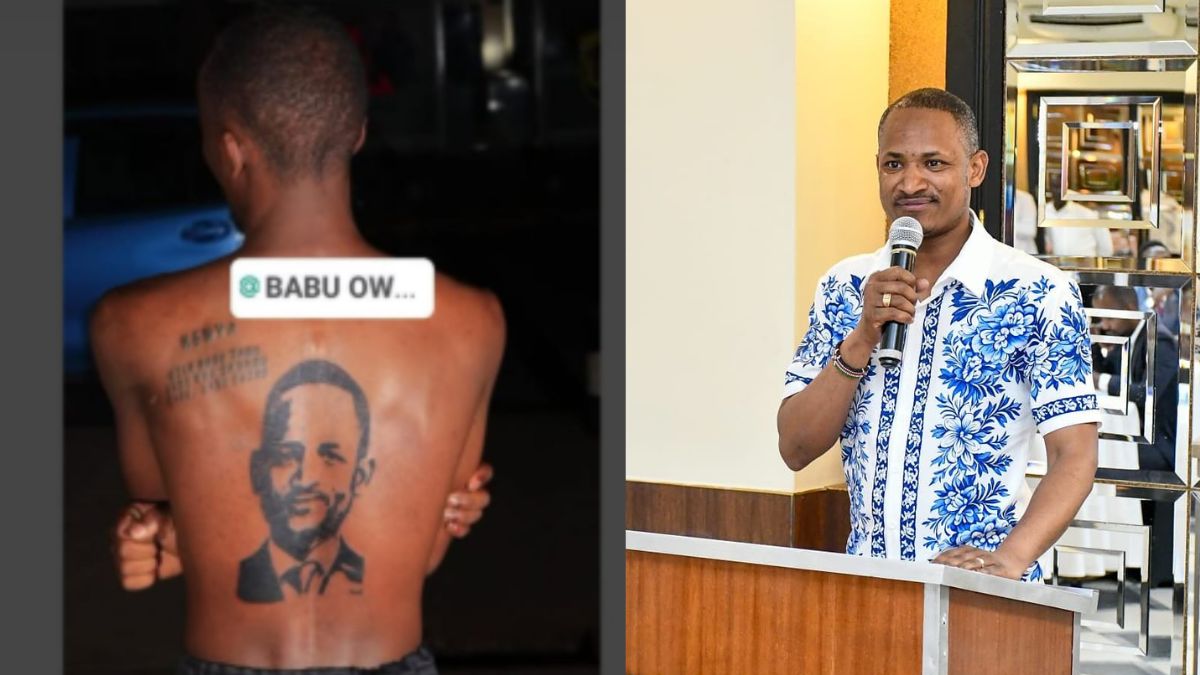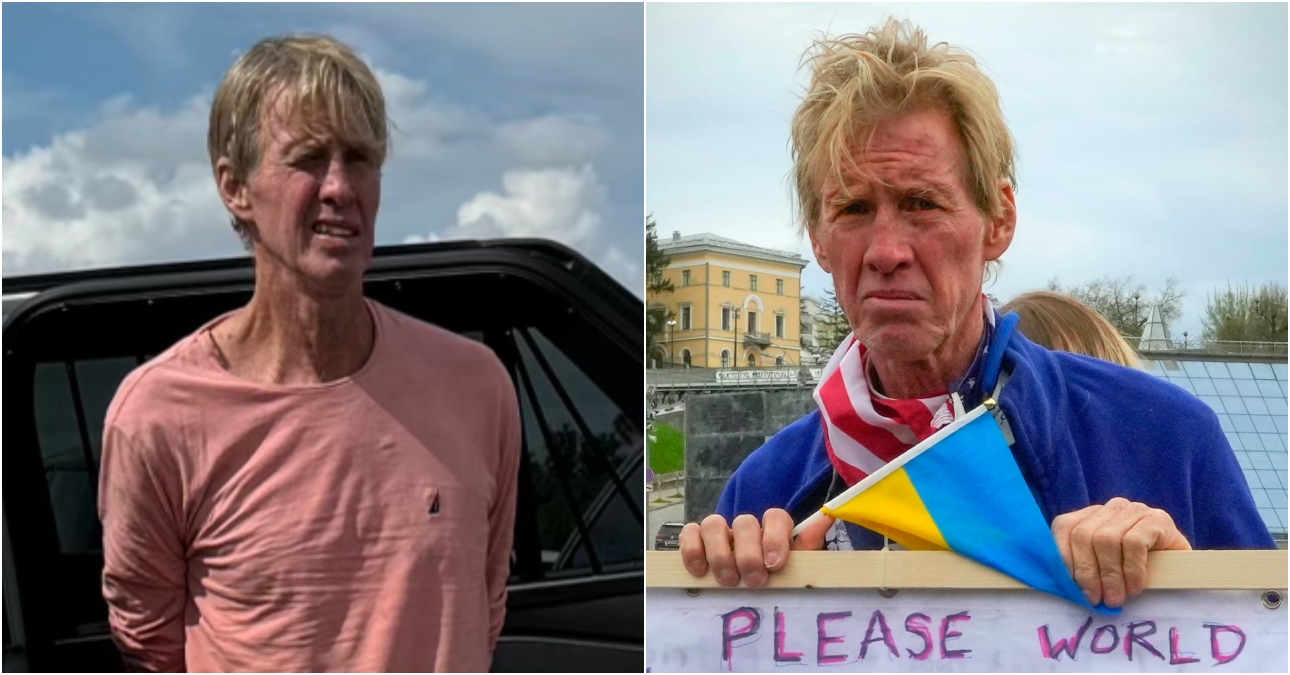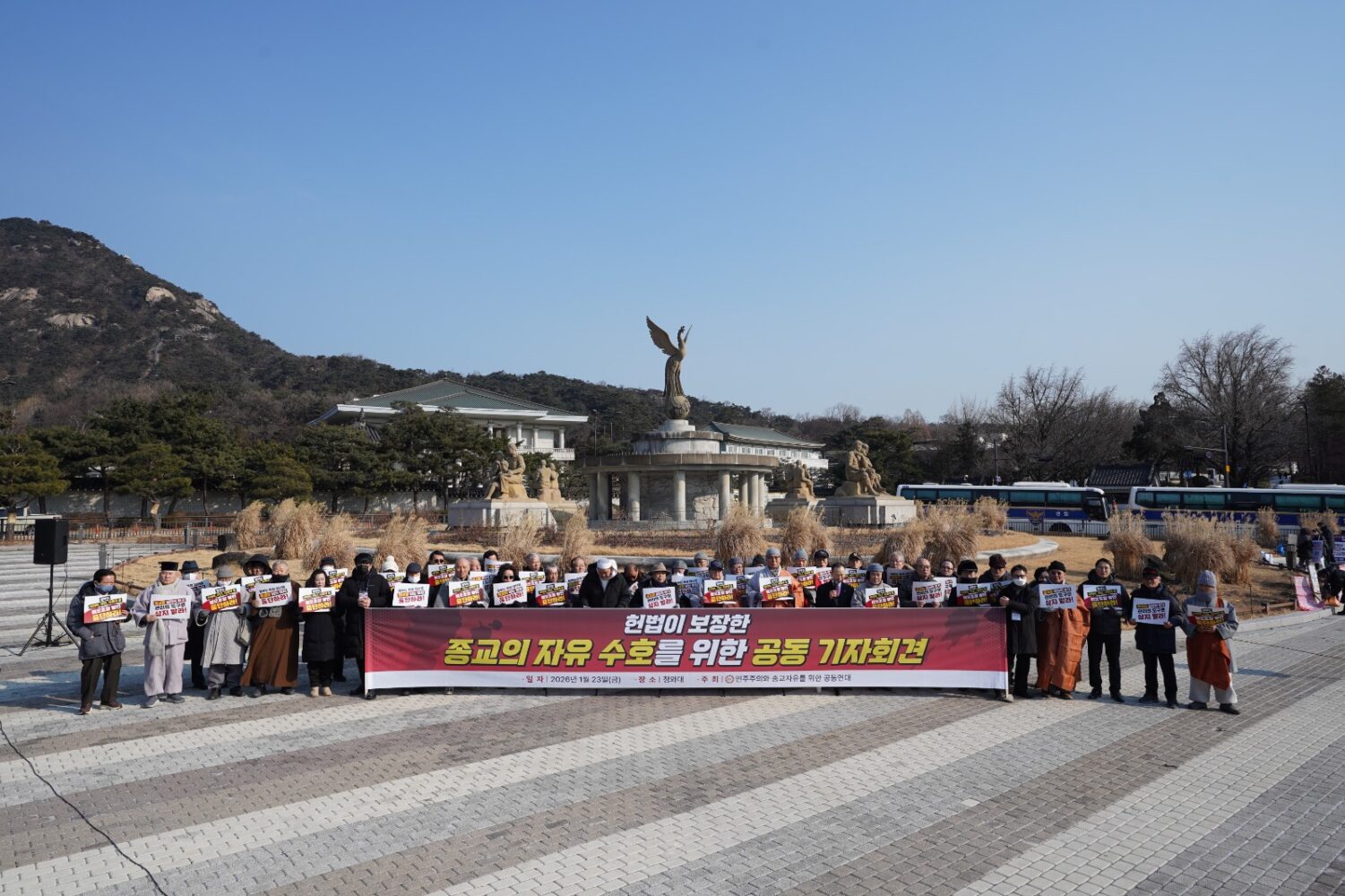Prime Cabinet Secretary Musalia Mudavadi has stated that Kenya’s position on the two-state solution for resolving the Israeli–Palestinian conflict extends beyond just a policy and is now reflected in the sessional paper passed by parliament.
Mudavadi, also the Cabinet Secretary for Foreign and Diaspora Affairs, stated that it could perhaps be the only country to have legislated on the matter, thereby establishing its position as a legal one with the support of the entire country.
Speaking when he met the ambassadors from Arab League countries at his Railways office, Mudavadi said that the two-state matter was no longer a matter of verbal communication or diplomatic posturing.
“The issue of the two-state solution is no longer debatable in Kenya; it is a law, under the sessional paper one of 2025. So, as a country, we move forward from verbal communication, and we could be among a few countries, if any, that have taken the matter to that level,” said Mudavadi.
The Group of Arab Ambassadors had visited Mudavadi to meet and share some of their concerns regarding the ‘unfortunate’ developments in Palestine.
He said Kenya may not have the firepower in the conflict, but through diplomacy, it wants to see peace in the Middle East and particularly in Gaza.
He described the Gaza conflict as unfortunate, a huge level of devastation, including the loss of human life, destruction of property, and the infrastructure.
“We are clear that the atrocities going on in Gaza are unnecessary and uncalled for. We will continue to express our displeasure at the loss of life and the destruction of property. We need an opportunity for freedom. Lives lost cannot be compensated; that is why the conflict must come to an end immediately,” said Mudavadi.
Responding to the ambassadors’ concerns on the statement of the Government spokesman on the conflict in the Middle East, Mudavadi expressed apologies to the capitals of the member states for the statement that may have caused distress, noting that the position did not represent that of the Ministry of Foreign Affairs.
Mudavadi said that he was in support of the UN summit on the Middle East conflict to be held at the end of the month, noting that the meeting was important to deliberate on ending the conflict and the rebuilding of Gaza.
“We were expecting the United Nations Secretary General, Antonio Guterres, to visit Nairobi and inspect the ongoing expansion of the UN facility, but he deferred the trip on the 27th of July because of the UN meeting in New York, which we support,” said Mudavadi.
The PCS said there was danger that the conflict in the Middle East could spill over and cause instability in the region.
During the meeting, Mudavadi pledged to partner more with the Arab League nations with a process to have broader and deeper diplomatic relationships.
“It is a competitive world; if we don’t take time and engage with our partners, our competitors will knock on the next door and go ahead and make deals,” said Mudavadi.
He used the opportunity to laud Qatar for facilitating the peace process in the Democratic Republic of Congo and urged them to now support the East African Community (EAC) and Southern African Development Community (SADC) to ensure they resolve the long-standing issues in the conflict.
Ambassador Hazem Shabat, of the State of Palestine and Dean of the Arab League envoys, urged Kenya to stand with them in pushing for the de-escalation of the conflict in Gaza.
Those in attendance include Khalid Abdullah Al Salman, royal embassy of the Kingdom of Saudi Arabia, Firas Farhan Saleh Khouri, Ambassador Hashemite Kingdom of Jordan, Wael Nasreldin Attiya, ambassador, the Arab Republic of Egypt, and Dr. Salim Al Naqbi, among others.
Shabat said that the Palestinian Cause lay at the center of Arab International Relations and Diplomacy, individually and collectively.
“Throughout these past decades, the Arab Countries have been at the forefront of international endeavors to end colonization, foreign occupation, and apartheid, and have also contributed significant initiatives that aim at promoting peace, justice, and long-lasting stability in our region and numerous mediations in other conflicts in other corners of the world,” said Shabat
Shabat said throughout this period leading to the present day, Israel the Occupying Power, has escalated its illegal actions of expansion into the internationally recognized occupied territory through land annexation, transfer of population, aggression against civilians, illegal demolition of Houses and properties, suffocating livelihoods of the Palestinian population, all perpetrated in violation of all relevant Security Council, General Assembly, and Council of Human rights resolutions and decisions.
“The latest chapter of the conflict has also exposed beyond any doubt the level of aggression that is embedded in Israel’s military doctrine. Mercilessly targeting and killing scores of Palestinian Civilians around the clock for almost two years, targeting of civilian medical facilities, the use of Starvation as a weapon, obstruction of international aid to civilians, are crimes that have all been not only documented by all UN bodies including OCHA, UNEP, UN-Habitat, but witnessed by the entire world on live TV attracting wide condemnation by a sweeping majority of Governments and Organizations around the world,” said Shabat.
Amb Shabat said that between 7 October 2023 and June 2025, at least 56,156 Palestinians were reported killed and 132,239 injured in the Gaza Strip. The fatalities include 17,121 children (31 per cent), 9,126 women (17 per cent), 24,818 men (45 per cent), and 4,137 elderly persons (seven per cent).
”More than 1.9 million Palestinians—over 90 per cent of Gaza’s total population—have been forcibly displaced. 55 % of fatalities neither belong to the age nor gender of the claimed combatants. The scale of destruction is immense: approximately 70 per cent of all structures in the Gaza Strip have been either destroyed or damaged. At least 94 per cent of all hospitals have been damaged or destroyed, and nearly 90 per cent of all school buildings have sustained damage or destruction,” said Shababt.
He noted that the humanitarian situation continues to deteriorate, and since the beginning of 2025, an average of 112 children have been admitted daily for treatment of acute malnutrition, with conditions expected to worsen if immediate action is not taken.
According to the April 2025 report by the United Nations Environment Programme (UNEP), the ongoing war has generated 53.5 million tons of debris. Moreover, as a result of the devastation of the situation, UN-Habitat is currently preparing a comprehensive report on the status of efforts to reconstruct human settlements in the Gaza Strip, scheduled for release by November 2025.
“To put the amount of damage into perspective, the total recovery and reconstruction needs are estimated at US$53.2 billion according to the Gaza and West Bank Interim Rapid Damage and Needs Assessment report issued in February 2025 by the World Bank, European Union, and United Nations,” said Shabat.


